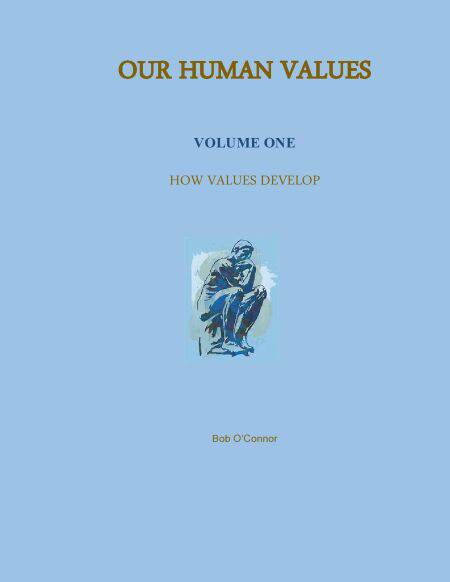
- Afhalen na 1 uur in een winkel met voorraad
- Gratis thuislevering in België vanaf € 30
- Ruim aanbod met 7 miljoen producten
- Afhalen na 1 uur in een winkel met voorraad
- Gratis thuislevering in België vanaf € 30
- Ruim aanbod met 7 miljoen producten
Omschrijving
WHY THIS SERIES?
The original idea was to make people aware of the underlying assumptions and varying reasons that we use to make the value decisions that we do. We usually think that we have very good reasons for what we believe and do. People's thinking and actions will always begin with a non-provable basic assumption, as primary: one's self, one's God, or one's idea of a better society. Next, it will depend on the evidence that we use to validate our assumptions. However, often the reasons we give are rationalizations for non-thinking reactions that we have made.
I began with writing what is now Volume 3--examining a number of individual and social problems from the points of view of the three basic assumptions, then applying evidence to each that could make each have value (be moral) or not have value (be immoral). Then I realized that I needed to provide much more information on how our basic assumptions develop. Philosophers usually assume, or at least hope, that we think our way into our beliefs. However, my background in psychology, and my studies of genetics and epigenetics, have enlarged my philosophic comprehension and interest. Consequently, it became obvious that two more volumes would be needed to clarify the structure of Volume 3.
Volume I (Our Human Values-- How They Develop) examines each basic assumption along with its possible origins from self-centered (genetic, epigenetic, intra-uterine, infancy through maturity--including both conscious and unconscious factors), through God-based assumptions (philosophy of religion and comparative theologies), to society-based assumptions (obstacles to utopia, liberty versus equality, and various concerns with modern democracies).
Volume II (Our Human Values--Values, Identities and Society) surveys the various sources of evidence one might use in validating one's ideas. It briefly touches logic, logical fallacies, and spends some time on identities and how often, especially today, people use faulty evidence to construct their identities or how their identities seek out, and only believe, evidence that validates what they hope is true.
Volume III briefly analyzes a number of individual and social problems such as: abortion, capital punishment, Black Lives Matter, eugenics, and human rights--and shows how each can have value, or not have value, when using each of the basic assumptions, depending on which evidence is selected to validate the assumption.
Specificaties
Betrokkenen
- Auteur(s):
- Uitgeverij:
Inhoud
- Taal:
- Engels
- Reeks:
Eigenschappen
- Productcode (EAN):
- 9798201955946
- Verschijningsdatum:
- 14/06/2021
- Uitvoering:
- E-book
- Beveiligd met:
- Adobe DRM
- Formaat:
- ePub

Alleen bij Standaard Boekhandel
Beoordelingen
We publiceren alleen reviews die voldoen aan de voorwaarden voor reviews. Bekijk onze voorwaarden voor reviews.











